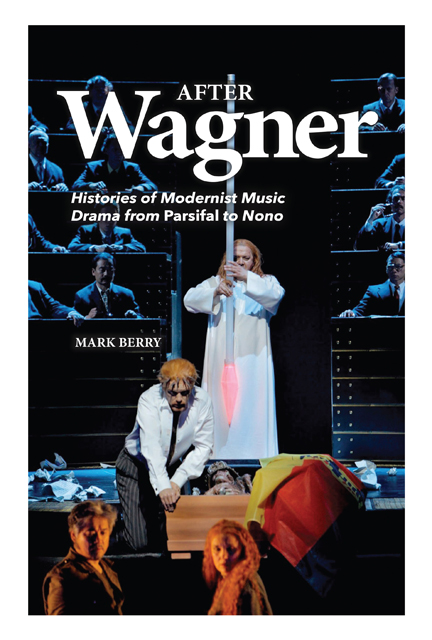Book contents
- Frontmatter
- Contents
- List of Music Examples
- Acknowledgements
- Dedication
- Introduction: ‘After Wagner’
- Part I In the Shadow of German Idealism: From Parsifal to Capriccio
- Part II Composition after the Second World War: From Germany to Italy, and Back Again?
- Part III Performance and the Fruitful Instability of the Work: From Parsifal to Nono
- Bibliography
- Index
6 - Hans Werner Henze: Paths to (and from) Natascha Ungeheuer
Published online by Cambridge University Press: 24 February 2023
- Frontmatter
- Contents
- List of Music Examples
- Acknowledgements
- Dedication
- Introduction: ‘After Wagner’
- Part I In the Shadow of German Idealism: From Parsifal to Capriccio
- Part II Composition after the Second World War: From Germany to Italy, and Back Again?
- Part III Performance and the Fruitful Instability of the Work: From Parsifal to Nono
- Bibliography
- Index
Summary
Henze’s way proved very different from but at least as involving as the paths of the composers looked at so far. It was certainly not Schoenberg’s Biblical way; nor, despite the title of its most equivocal of (non-)destinations, Der langwierige Weg in die Wohnung der Natascha Ungeheuer (‘The Tedious Way to Natascha Ungeheuer’s Apartment’), could it in any sense be described as tedious. Dallapiccola and Nono have already signalled the complexity of the relationship between Italian and German experience, which should never be viewed a simple opposition. Henze’s attraction towards Italy offers further evidence of that complexity. He left Germany in disgust in 1953, escaping in his car, driving south until reaching Italy, where he would spend much of the rest of his life. However, many of his political and compositional imperatives would remain indelibly marked by his nationality and by the inescapable weight of German tradition and history.
Henze was born in 1926, in Gütersloh, Westphalia, growing up in a village thirty kilometres from Bielefeld, which city he occasionally visited for musical events. He saw himself as having been triply cursed. Not only was he a German, but a German cut off from the preferable ‘south German, Bohemian, and Austrian world of sun and pleasure’, and also – important for his experience both during and after the war – a German homosexual in what was, to put it mildly, an unfriendly climate. He felt scarred by having seen his father, an apparently liberal village schoolmaster, be transformed into not just a party member, but an enthusiastic, truly-believing Nazi. In his autobiography, Henze recalls his father, having been alerted to some undisclosed incident by Henze’s mother, summoning the teenage boy into his presence and telling him that ‘“people like me” belonged in concentration camps. I shall never forget his words. I was forbidden to write any music and for three weeks had to spend two hours every afternoon chopping wood instead of practising the piano.’ Though admitted to the Brunswick State Music School, Henze was conscripted during total war, eventually spending several months as a prisoner of war in Schleswig-Holstein. During that time he met Willy Meyer, an oboist from the Staatskapelle Dresden – Wagner’s old orchestra, with a lengthy Strauss association too – from whom he first heard the phrase ‘dictatorship of the proletariat’.
- Type
- Chapter
- Information
- After WagnerHistories of Modernist Music Drama from Parsifal to Nono, pp. 172 - 204Publisher: Boydell & BrewerPrint publication year: 2014



